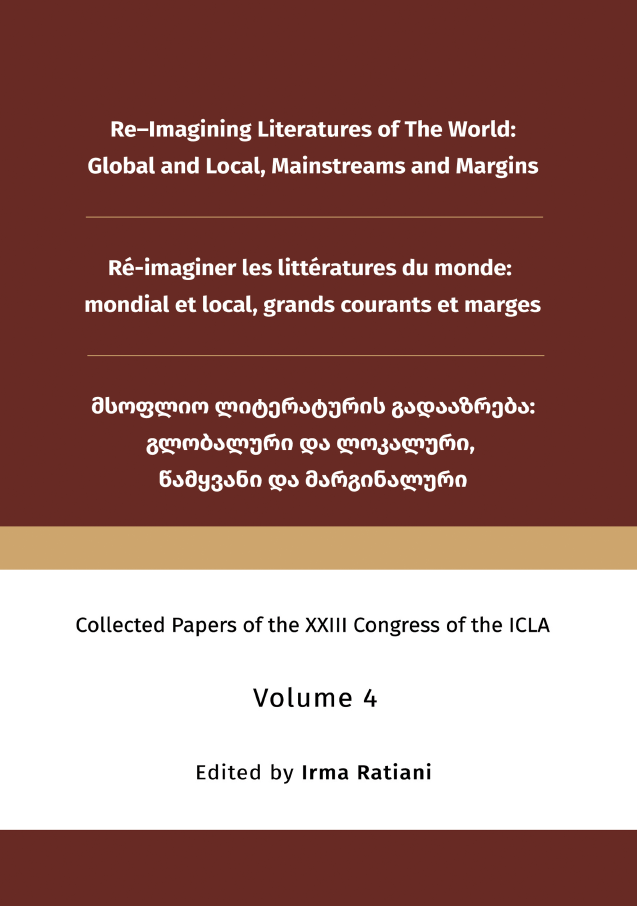ომის თემა გერმანულ და ქართულ ლიტერატურულ ბაროკოში (ანდრეას გრიფიუსი და დავით გურამიშვილი)
Main Article Content
ანოტაცია
The fierce Thirty Years' War in 17th century Germany (1618-1648) and the internal political chaos in 18th century Georgia (political fragmentation), the foreign aggression of the Ottoman Empire and the Kingdom of Iran against Georgia became the subject of poetic creativity, in particular, in the works of the famous German Baroque writer Andreas Gryphius (1616-1664) and the poem "Davitiani" by the representative of Georgian Baroque, Davit Guramishvili (1705-1792). War is considered here as an apocalyptic event that not only destroys the homeland politically and economically but also war is regarded as a universal catastrophe, because it destroys all perspectives on human existence, making the course of history lose its meaning. The lyrical characters of these authors reflect this hopelessness and meaninglessness with the baroque characteristic of Baroque, the deep sense of vanity, and the high style of Baroque poetry (genus grande), which makes the theme of war more apocalyptic than apocalypse itself.
Thus, if Gryphius' sonnet “Thränen des Vaterlandes. Anno 1636” is set within the framework of the thirty-year war, where the apocalyptic visions of an objective universal catastrophe and the expectation of this apocalypse are conveyed, then in Guramishvili's lyrical poem we have reflections on the subjective existential fate, which is caused by a priori objective existences – political destabilization (historical factor) and the perfidy of "life" and "existence”, that is, by the spontaneity and unpredictability of existence (ontological factor) – "it is not in the hands of the one who holds it, but if you hold it with a fist". And here, the subjectivism of the lyrical hero of Guramishvili's poem, i.e. his subjective reflections on his existence, suddenly turns into an objective existential situation, namely, using Sartre's terminology, the existence of the lyrical hero of "Davitiani" can be perceived as "being" (Fr. en-soi, Germ. An-sich-ein, Existenz) and "essence“ (Fr. pour-soi, Germ. Für-sich-sein, Essenz) in the objectively given dialectic (Galle, 2009, p. 20; Seibert, 1997, p. 128), e. i. in the objectively given dialectic of existence and being when first there are existing and its ontological data, and then the personal existence of a person written in these data. Therefore, a priori we have an existential situation, when the existing and its ontological data always precede and forego the person (respectively, the lyrical hero of "Davitiani") and his private existence, and these ontological data (for example, birth, death, historical existence, temporality, transience, impermanence, etc.) appear to a person (respectively, the lyrical hero of "Davitian") as they are already written in advance, as they already exist beforehand.
